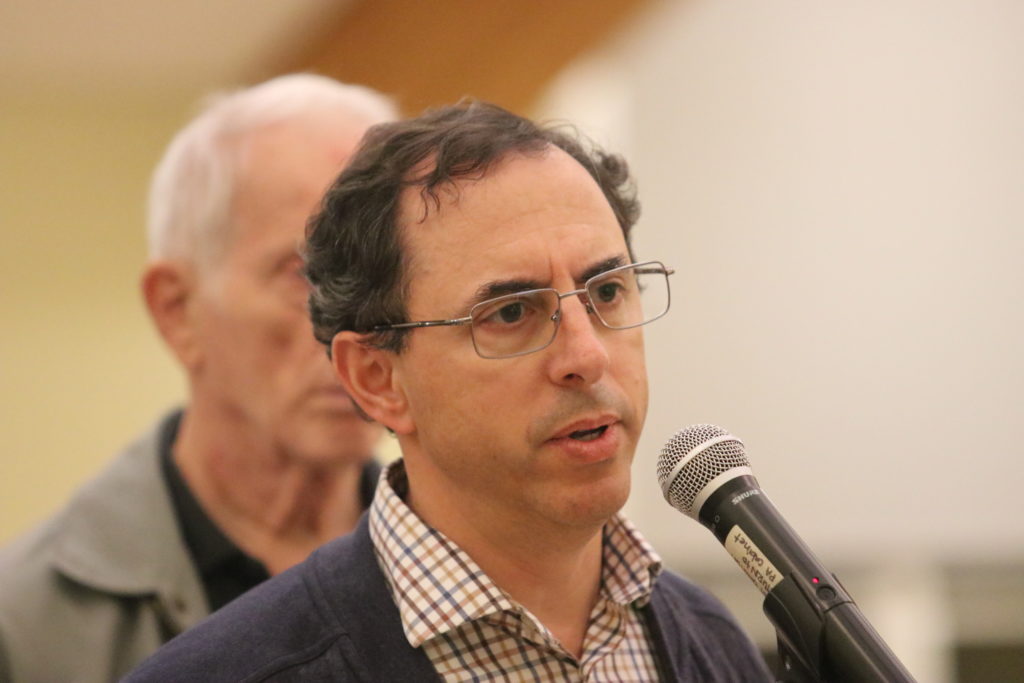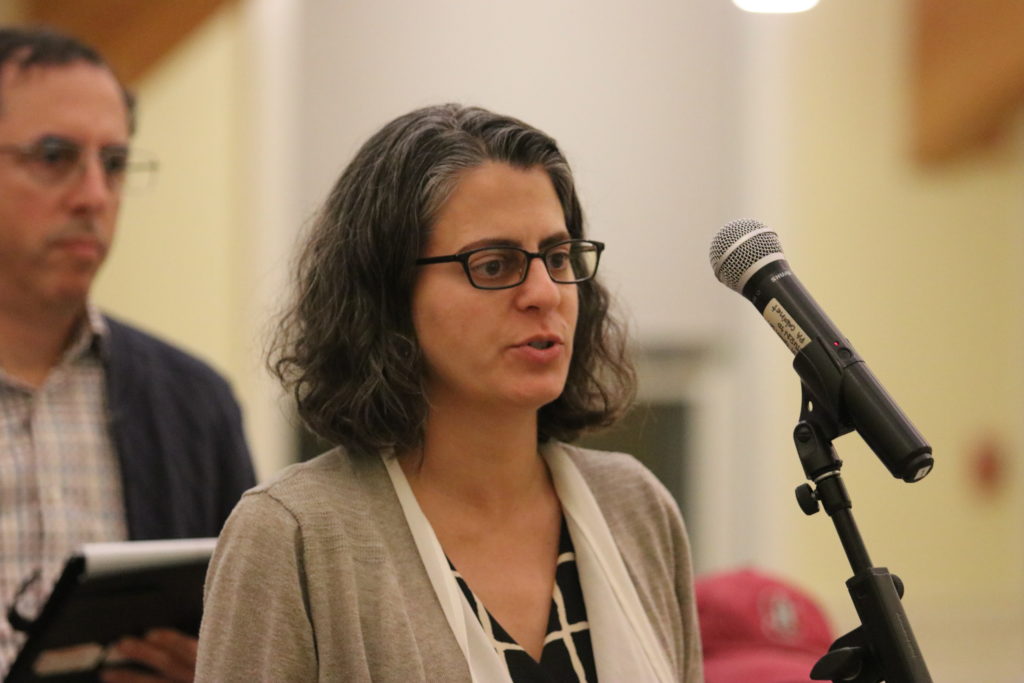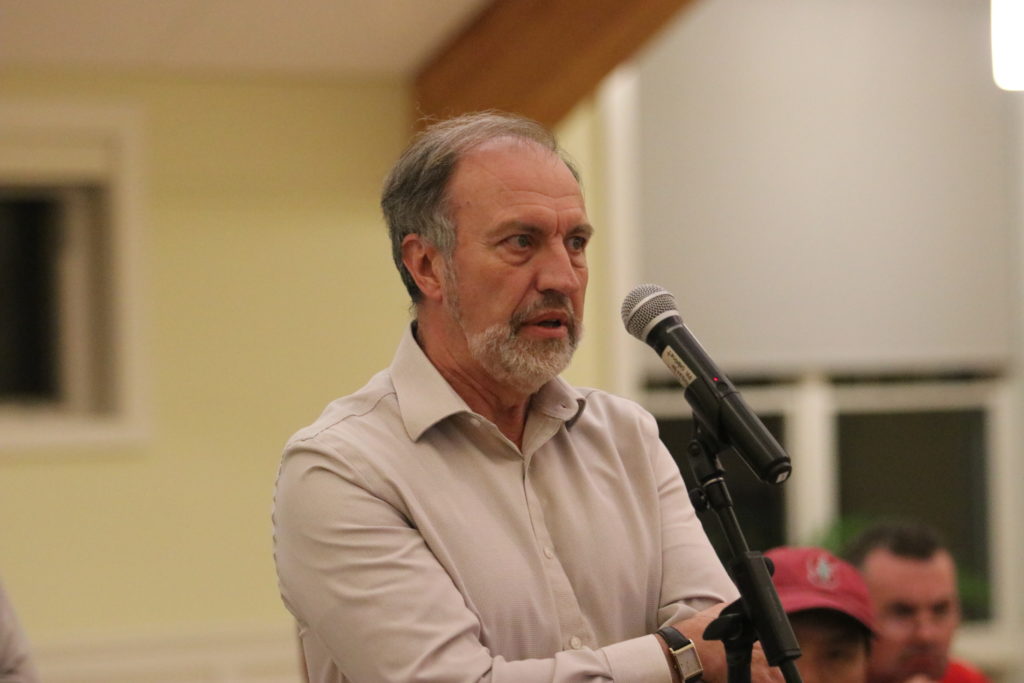Photo: Mike Widmer
Due to what nearly everyone at the Special Town Meeting expects to be one of the most contentious articles for many years, Town Moderator Mike Widmer this afternoon, Wednesday, Sept. 23, has placed a limit on the scope of debate on Article 10, the measure which would end civil service for rank and file Belmont Fire and Police personnel.
Here is Widmer’s announcement:
One of the most important responsibilities of the Moderator is to determine the scope of permissible discussion under any article. In the vast majority of articles that determination is straightforward. But in a minority of instances, often the most controversial issues, it takes considerable research and consultation to determine the approach that is in the best interests of Town Meeting.
In terms of Article 10, I have probably spent more hours considering proper scope than I have with any other article in my 12 years as Moderator. As part of this process I have had extensive discussions with Town Counsel George Hall.
My conclusion is that the only correct and fair way to proceed with Article 10 is to limit discussion purely to the merits of the proposal advanced by the Select Board:
Should the Belmont police and fire departments be withdrawn from Civil Service? Only the merits of this policy proposal are the province of Town Meeting.
The process by which the Select Board decided to bring this article forth is not an appropriate matter for debate. Much of the public discussion, certainly brought forth by the unions, is that the Board should have negotiated with the unions before bringing this issue to Town Meeting. But how are Town Meeting Members to know the unbiased facts of what happened at the negotiating table since those are legally mandated to be private matters? Process issues between union and management are inextricably tied to collective bargaining which definitely is not the province of Town Meeting.
Our role as a legislative body is to debate issues advanced by the executive branch or by citizens’ petitions. We have no authority to insert ourselves into the collective bargaining process. Those questions are clearly out of scope of the article as well.
This reality may be frustrating to individual Town Meeting Members, and Members are free to vote yes or no based on whatever factors they choose. But I am sure you all agree that we should not break longstanding and bedrock principles of the separation of powers.
Mr. Widmer can be reached at mike.j.widmer@gmail.com
A clarifying amendment for Article 10
Roy Epstein, Chair of the Select Board and Precinct 6 Town Meeting Member has moved to amend the main motion under Article 10 by adding to the end of the motion the following clause: “,said revocation not to take effect until March 1, 2021.”
The resultant motion will now read:
Motion: That the Town remove the Police and Fire Department from the provisions of the Civil Service Laws, and the rules and regulations relating to the same, by revoking the Town’s acceptance of Section 37 of Chapter 19 of the General Laws voted under Article 15 of the Warrant for the 1915 Annual Town Meeting and of Section 48 of Chapter 31 (as both have been recodified in G.L. c. 31, § 52), said revocation not to take effect until March 1, 2021.
The rationale for the clarifying amendment is to correct a drafting error in the motion. The intent of the motion is to allow anyone promoted, as a result of taking a civil service exam in 2020, to remain grandfathered in civil service after their promotion.
A Town Meeting session too long? Pumpkin time is 9 p.m. Wednesday
Town Moderator Mike Widmer will be keeping a watch on the clock on the wall at Wednesday’s Special Town Meeting:
On a related matter, some Town Meeting Members have expressed a concern that the meeting went too long on Monday night. I do want to emphasize to Town Meeting Members that we time every speaker; presenters have specifically assigned time limits. Town Meeting Members have three minutes as their limit. Tonight we have two important matters to discuss and I want to allow for a full discussion of Civil Service. If we are able to complete action on Article 9 by 9 p.m, I think it makes sense to proceed to Article 10. However, if it is after 9, I will ask for a vote of Town Meeting Members whether we continue with Article 10 or whether we adjourn to Sept. 30.


